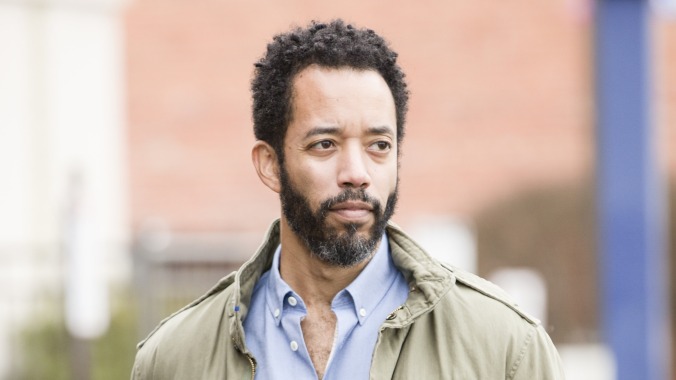Let’s revisit some Problem Areas with Wyatt Cenac

Here’s what’s happening in the world of television for Thursday, June 4. All times are Eastern.
Top picks
Wyatt Cenac’s Problem Areas (HBO via YouTube): Sometimes the good ones get canceled. Too often, in fact. Such is the case with Wyatt Cenac’s Problem Areas, a gone-too-soon late-night series that got the ax after a strong second season. But HBO has wisely chosen to make the entire first season, which focuses largely on policing in the United States, available for free via YouTube. So even if you don’t have HBO (or are still trying to figure out whether or not you have HBO Max), you can catch the whole season. And who knows, perhaps the fact that this collection of 10 episodes is proving invaluable at the present moment will persuade HBO to revisit Problem Areas, which is executive-produced by Cenac, Hallie Haglund, and the network’s beloved John Oliver, once again.
Here’s Danette Chavez on the premiere, which you’ll find below this excerpt. To access the other nine episodes, click through to HBO’s YouTube channel.
There are obviously many problem areas, but racially charged shootings is one that Cenac pledges to cover throughout the first season. While introducing the first of many recurring segments, the Brooklyn comedian strolls across the set like his contemporaries at Full Frontal and The Rundown With Robin Thede. But in a telling move, he takes a seat to listen to activist and government officials discuss a viable strategy for police reform. The show recognizes this is a fraught subject, so nothing’s dumbed down or sugarcoated. And though he’s clearly invested in a solution, Cenac doesn’t try to steer the conversation one way or the other. He shows the same curiosity from specials like Brooklyn and his tenure on The Daily Show, but the pointedness of Problem Areas recalls his criminally underseen webseries, Aka Wyatt Cenac. In that Topic show, Cenac played a vigilante who tried to thwart gentrifiers in Brooklyn, a battle that many would view as already lost, but that just made his doomed crusade funnier—and more poignant.
Can you binge it? Yes. In addition to this first season, HBO subscribers can catch the second season in full.
We’re Here (HBO, 9 p.m., first-season finale): “We’re Here is an easy sell to fans of Drag Race. What HBO couldn’t have counted on is how timely the series feels. With much of the world social distancing due to Covid-19, the importance of the arts to connect and bring people together has been underscored, as has the power of live performance… There is plenty to connect to on a thematic level, from explorations of gender presentation, small town life, and religion to the intersections of queer identity and race, and there’s plenty to connect to on an aesthetic or comedic level. For many right now, though, the opportunity to experience a taste of live performance, with a live audience, is enough of a reason to tune in. Regardless of motivation, or level of drag familiarity, We’re Here is a charming and engaging reality series and one well worth watching.” Read the rest of Kate Kulzick’s glowing pre-air review, then check out the logline for the finale of this excellent first season: “When Covid-19 disrupts their production schedule, the queens do what they do best: they make it work. Featuring some never-before-seen performances, Bob, Eureka, and Shangela reflect – from the comfort of their homes – on how drag changed, and even saved, their lives.”









![Rob Reiner's son booked for murder amid homicide investigation [Updated]](https://img.pastemagazine.com/wp-content/avuploads/2025/12/15131025/MixCollage-15-Dec-2025-01-10-PM-9121.jpg)

























![HBO teases new Euphoria, Larry David, and much more in 2026 sizzle reel [Updated]](https://img.pastemagazine.com/wp-content/avuploads/2025/12/12100344/MixCollage-12-Dec-2025-09-56-AM-9137.jpg)




